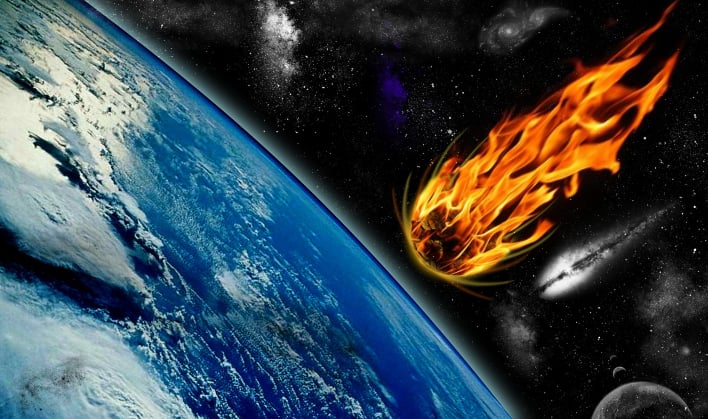Declassified Docs Reveal A 130K MPH Fireball Slammed Into Earth's Atmosphere In 2014

A pair of Harvard University researchers, Amir Siraj and Abraham Loeb, wrote a breakthrough paper in 2019 on the incident. The research paper was initially flagged and has yet to be peer-reviewed, due to the fact that part of the information needed to confirm it was classified by the US government. However, the information that has been needed was finally confirmed by the USSC in a recent memo.
The 2019 paper documented a small meteor, which measured just a few feet wide, that ignited a fireball in the skies near Papua New Guinea and may have sprinkled interstellar debris into the South Pacific Ocean in January of 2014. Siraj says that the study has been awaiting peer review for years, but has been held up due to the unique circumstances.
The newly released information from USSC backs up the findings by the duo in 2019 of the first interstellar meteor, and retroactively as the first interstellar object of any kind to reach our solar system. The memo, dated March 1st and shared on Twitter by Lt. General John E. Shaw, stated the 2019 analysis of the meteor was "sufficiently accurate to confirm an interstellar trajectory."
6/ “I had the pleasure of signing a memo with @ussfspoc’s Chief Scientist, Dr. Mozer, to confirm that a previously-detected interstellar object was indeed an interstellar object, a confirmation that assisted the broader astronomical community.” pic.twitter.com/PGlIOnCSrW
— U.S. Space Command (@US_SpaceCom) April 7, 2022
The researchers argued that the speed of the meteor in 2019, as well as the trajectory of its orbit, proved within 99% certainty that the celestial object originated from beyond our solar system. The authors wrote that it is possible that it is "from the deep interior of a planetary system or a star in the thick disk of the Milky Way galaxy."
The confirmation as seen on Twitter above, makes the 2014 meteor the first interstellar object to ever be detected in our own solar system. This predates the discovery of 'Oumuamua, a cigar-shaped object that was also moving too fast to have originated in our solar system, by three years. 'Ounuamua was detected far away from Earth and is currently hurtling out of our solar system, according to NASA.
While Siraj admits it is highly unlikely any debris can be recovered, he said, "The possibility of getting the first piece of interstellar material is exciting enough to check this very thoroughly and talk to all the world experts on ocean expeditions to recover meteorites."
Top Image Credit: Rafael Moura Sb. from Pixabay

